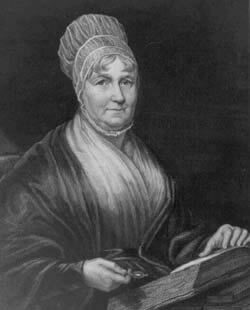Prison reformer. Born as Elizabeth Gurney in Norwich into a Quaker banking family. Priscilla Wakefield was her aunt. She first visited Newgate prison in 1813 and was appalled at the conditions of female prisoners. She campaigned and was influential in the introduction of the Prison Act of 1823. She is represented on the English £5 note.
This section lists the memorials where the subject on this page is commemorated:
Elizabeth Fry
Commemorated ati
Elizabeth Fry
Mrs Elizabeth Fry, 1780 - 1845, prison reformer, lived here, 1800 to 1809. T...
New Lansdowne Club
The Elizabeth Fry Refuge, 1849 -1913, to help women in need. Elizabeth Fry, 1...
Other Subjects
Countess Mountbatten of Burma
Vicereine of India and director of emergency relief services. Born Edwina Cynthia Annette Ashley at 32 Bruton Street. A leading member of London society, she married Lord Louis Mountbatten in 1922....
Person, Politics & Administration, Social Welfare, Borneo, India
Notting Hill Housing Trust
A social enterprise and charity providing affordable housing for Londoners. It was founded by Bruce Kenrick who had moved to Notting Hill in 1963 (which was then a far cry from the desirable area i...
Raoul Wallenberg
Born near Stockholm. Worked for an import-export company owned by a Jewish Hungarian. Travelling frequently to Hungary, he learned Hungarian and become joint owner of the company. In spring 1944 th...
Person, Politics & Administration, Seriously Famous, Social Welfare, Hungary, Sweden
Universal Declaration of Human Rights
Document adopted by the United Nations General Assembly at its third session on 10 December 1948. Eleanor Roosevelt chaired the committee that drafted it and our image shows her holding the Spanish...
Irish immigrants
From the Irish Times: "In the grim 1950s, 40,000 people left Ireland every year to emigrate to Britain. They built the roads and repaired the bombed out buildings of post-war Britain. They staffed ...








Comments are provided by Facebook, please ensure you are signed in here to see them